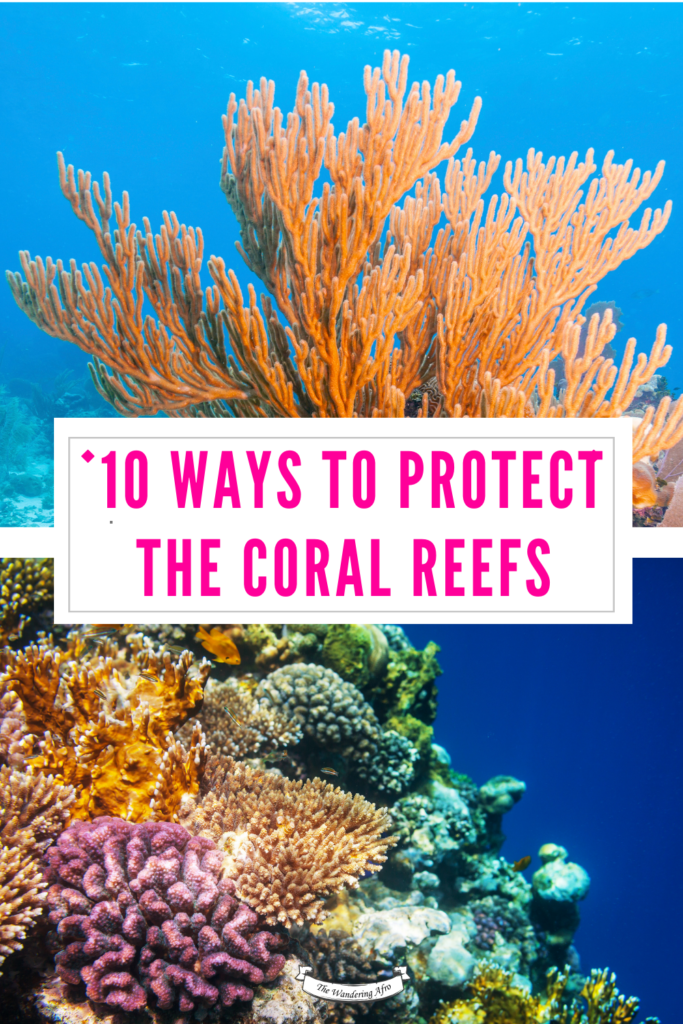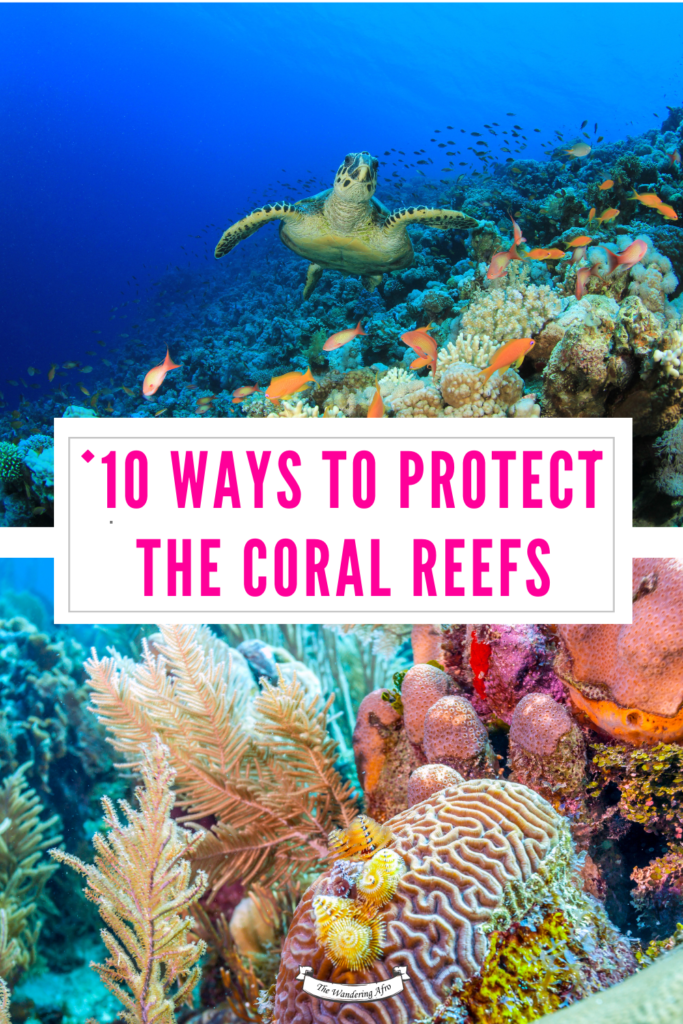Why Should We Care about our Coral Reefs?
Due to pollution, global warming, and overfishing, 50% of the world’s coral reefs have died, and 90% may die within the next 100 years. This will have catastrophic impacts on our global community.
People in developing countries will feel the consequences if we don’t work together to restore coral reefs. Coral reefs play an essential role in the underwater animal and plant ecosystem. Without them, we may lose millions of fish, aquatic animals, and plant life. That will hurt fishermen and the local economy. This means fewer tourists flocking to see coral reefs and less tourism money for vulnerable communities. And since coral reefs offer natural coastal protection, community members are in greater danger when hurricanes or tropical storms hit.
Hotels
Get the best rates on hotels and private accommodations.
Car Rentals
Renting a car can be easy and stress-free.
Activities
Looking for the best things to do? I’ve got you covered.
10 Ways to Help Protect our Coral Reefs
Wear reef-safe sunscreens.
Avoid products with Octinoxate or Octocrylene. Darker skinned people should make sure to use sunscreens that don’t leave a white cast. Check out our earlier blog for more in-detail reef-friendly beauty recommendations.
Conserve Water
Did you know that conserving water can help protect our coral reefs? It’s true! Excessive water use leads to increased runoff, often carrying harmful pollutants and sediments into our oceans. This runoff can smother coral reefs, block the sunlight they need to thrive, and even encourage harmful algae growth.
By simply being mindful of our water use—whether at home or while traveling—we can reduce this runoff and help keep our oceans clean and coral reefs healthy. So next time you’re enjoying a tropical getaway, remember that small actions like saving water can make a big difference in preserving the beauty of our underwater worlds! Less water usage means fewer toxins flowing into our oceans and lakes.


Don’t touch the coral reef when diving or snorkeling. Take many photos as memories but don’t take pieces of the coral reef or animal shells. Corals are incredibly delicate organisms, and even a light touch can cause them serious harm, disrupting their growth and making them more vulnerable to disease. Instead of touching, focus on enjoying the vibrant reef ecosystem from a distance.
Protect Coral Reef
Practice mindful snorkeling or diving by keeping a respectful distance, and if you need to adjust your gear or balance yourself, try floating in place rather than grabbing onto anything. By being a responsible visitor, you help protect these fragile reefs, allowing them to thrive for future generations of travelers.
Use Boats Respectfully
Using boats responsibly near coral reefs is crucial to protecting these fragile ecosystems. First, always anchor in designated areas or use mooring buoys rather than dropping an anchor directly on the reef, as this can cause significant damage to coral structures. Make sure to anchor in sandy areas away from coral and sea grasses.
When navigating, be mindful of your surroundings—avoid shallow waters where corals are closer to the surface, and follow marked channels to prevent accidental grounding. Also, make sure your boat’s engine is well-maintained to avoid oil leaks or fuel spills that can harm marine life. By practicing safe boating habits, you can enjoy the beauty of coral reefs without contributing to their destruction.Continue to learn.
Watch educational documentaries and join like-minded people in learning about our ocean.
Support reef-friendly businesses
Choose dive shops that respect our oceans. Do not give money to businesses that harm our oceans or engage in unsafe practices.
Supporting reef-friendly businesses while traveling is a great way to conserve coral reefs. Look for tour operators, hotels, and dive shops prioritizing sustainable practices, such as minimizing waste, reducing energy consumption, and using reef-safe sunscreen.
Choose businesses actively participating in coral reef conservation programs or collaborating with marine protection organizations. You can also support restaurants and shops that responsibly source seafood, avoiding overfished species contributing to reef degradation. By choosing businesses committed to protecting reefs, you contribute to preserving these fragile ecosystems for future generations.


Volunteer with Reef Conversation Efforts
Support and volunteer for organizations that protect coral reefs, oceans, lakes, water animals, and the environment.
Volunteering to help conserve coral reefs is a rewarding way to make a direct impact on marine ecosystems. Many organizations offer opportunities for volunteers to participate in reef restoration projects, such as planting coral fragments, removing invasive species, or conducting underwater cleanups to remove debris and plastic.
If you’re a certified diver, you can join specialized programs that involve monitoring coral health, surveying marine life, and even helping with scientific research. Additionally, non-divers can volunteer for beach cleanups, educational outreach, or fundraising events.
Look for reputable conservation groups like Coral Restoration Foundation or local reef protection organizations in the areas you visit to get involved!
Teach Others about Coral Reef Conservation
Teaching others to conserve coral reefs with compassion starts by raising awareness in a kind and approachable way. Instead of overwhelming people with dire warnings, focus on sharing why reefs are so vital to marine life and human well-being, and explain how small actions—like using reef-safe sunscreen, reducing plastic use, and respecting marine life—can make a big difference.
Encourage curiosity by offering positive examples, such as showing how sustainable tourism helps reefs thrive. Lead by example, and be patient when answering questions or addressing misconceptions. Most importantly, make the message personal and inspiring, emphasizing that we’re preserving something beautiful for future generations by protecting reefs.
Compassionate education sparks change by making others feel empowered, but not guilty. Share your love of the ocean with others. Gift a diving course to a young person you know or convince your friends to do an ocean cleanup with you.
Volunteer for Beach and neighborhood cleanups.
Volunteering for beach and neighborhood cleanups is a great way to make friends while caring for Mama Earth. Plastic pollutes our waters and harms coral reefs and animals. This website can help you find local cleanups near you.
Read More
- 5 Essential Scuba Diving Tips for New Divers
- Ultimate Guide to Reef-Safe Hair and Beauty Products
- The Ultimate Dive Trip Packing List
- 10 Common Questions New Divers Have about Scuba Diving
- List of Black-Owned Scuba Dive Shops
- The Ultimate Guide to Diving in the Bahamas
- Dahab: A Guide to Egypt’s Red Sea Beach Town
Did you find this post helpful? Please consider pinning it on Pinterest with the images below or following me on Instagram xoxo!







2 Comments